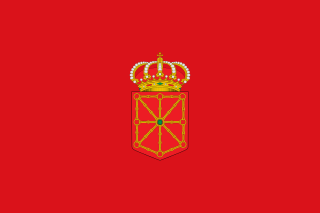
Navarre, officially the Chartered Community of Navarre, is a landlocked foral autonomous community and province in northern Spain, bordering the Basque Autonomous Community, La Rioja, and Aragon in Spain and Nouvelle-Aquitaine in France. The capital city is Pamplona. The present-day province makes up the majority of the territory of the medieval Kingdom of Navarre, a long-standing Pyrenean kingdom that occupied lands on both sides of the western Pyrenees, with its northernmost part, Lower Navarre, located in the southwest corner of France.
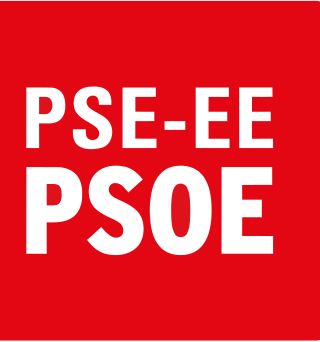
The Socialist Party of the Basque Country–Basque Country Left is a social-democratic political party in the Basque Country that acts as the regional affiliate of the Spanish Socialist Workers' Party (PSOE).

Yolanda Barcina Angulo is a conservative Spanish politician who was the mayor of Pamplona, Navarre from 1999 to 2011, and elected the chairwoman of the Navarrese People's Union (UPN) in 2009. From 2011 to 2015, she was the President of the Chartered Community of Navarre.

The 2011 Navarrese regional election was held on Sunday, 22 May 2011, to elect the 8th Parliament of the Chartered Community of Navarre. All 50 seats in the Parliament were up for election. The election was held simultaneously with regional elections in twelve other autonomous communities and local elections all throughout Spain.

The 2015 Navarrese regional election was held on Sunday, 24 May 2015, to elect the 9th Parliament of the Chartered Community of Navarre. All 50 seats in the Parliament were up for election. The election was held simultaneously with regional elections in twelve other autonomous communities and local elections all throughout Spain.
The Caja Navarra scandal was a banking scandal in northern Spain that unraveled in 2012 after the absorption of Caja Navarra (CAN) bank when it was integrated into the bad bank Banca Civica, by CaixaBank. Caja Navarra lost all its value which causing its actual demise. Caja Navarra's acronym and brand CAN was kept and converted into a foundation by the Spanish government. The highly controversial crash of the institution gave way to a demand of responsibilities.
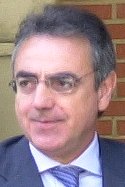
The 2007 Navarrese regional election was held on Sunday, 27 May 2007, to elect the 8th Parliament of the Chartered Community of Navarre. All 50 seats in the Parliament were up for election. The election was held simultaneously with regional elections in twelve other autonomous communities and local elections all throughout Spain.
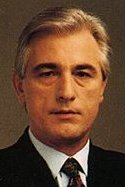
The 1983 Navarrese regional election was held on Sunday, 8 May 1983, to elect the 1st Parliament of the Chartered Community of Navarre. All 50 seats in the Parliament were up for election. The election was held simultaneously with regional elections in twelve other autonomous communities and local elections all throughout Spain.

Gabriel Urralburu Tainta is a Spanish politician who was President of Navarre between 1984 and 1991.
Corruption in Navarre refers to a quick succession of corruption scandals which have come to light since 2012 referring to the UPN's tenure in office. However, amidst heated political confrontation since the late days of Franco's dictatorship, the first corruption cases erupted early on, going back to the first government cabinets formed after the establishment of Navarre's "Betterment".

The 2019 Navarrese regional election was held on Sunday, 26 May 2019, to elect the 10th Parliament of the Chartered Community of Navarre. All 50 seats in the Parliament were up for election. The election was held simultaneously with regional elections in eleven other autonomous communities and local elections all throughout Spain, as well as the 2019 European Parliament election.

The 2023 Navarrese regional election was held on Sunday, 28 May 2023, to elect the 11th Parliament of the Chartered Community of Navarre. All 50 seats in the Parliament were up for election. The election was held simultaneously with regional elections in eleven other autonomous communities and local elections all throughout Spain.

María Victoria Chivite Navascués is a Spanish politician who serves as the President of the Government of Navarre. She has been the Secretary-General of the Socialist Party of Navarre (PSN–PSOE) since December 2014. A member of the 7th, 8th and 9th terms of the Parliament of Navarre, she also served as Senator between 2011 and 2015.

The 10th Parliament of Navarre is the current meeting of the Parliament of Navarre, the regional legislature of Navarre, with the membership determined by the results of the regional election held on 26 May 2019. The parliament met for the first time on 19 June 2019. According to the Statute of Autonomy of Navarre the maximum legislative term of the parliament is 4 years.
The president of the Government of Navarre, is the head of government of the devolved government of the Chartered Community of Navarre.

Manuel Ayerdi Olaizola is a Basque economist, politician, Minister of Economic Development and Business of Navarre and a member of the Parliament of Navarre. He was previously First Vice President of Navarre.
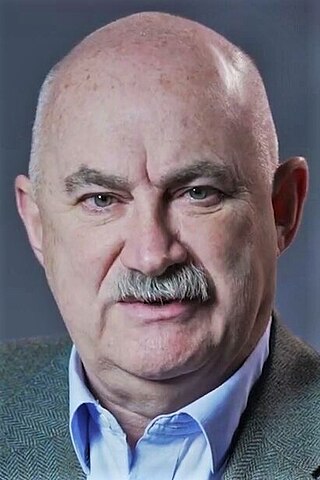
José María Aierdi Fernández de Barrena is a Basque politician, Second Vice President of Navarre and Minister of Territorial Planning, Housing, Landscape and Strategic Projects of Navarre. He was previously a member of the Parliament of Navarre and mayor of Lekunberri.

The government of Yolanda Barcina was formed on 2 July 2011, following the latter's election as President of the Government of Navarre by the Parliament of Navarre on 23 June and her swearing-in on 1 July, as a result of Navarrese People's Union (UPN) emerging as the largest parliamentary force at the 2011 Navarrese regional election and forming an alliance together with the Socialist Party of Navarre (PSN–PSOE), with which it held a majority in the Parliament. It succeeded the fourth Sanz government and was the Government of Navarre from 2 July 2011 to 23 July 2015, a total of 1,482 days, or 4 years and 21 days.
In the run up to the 2023 Spanish local elections, various organisations carry out opinion polling to gauge voting intention in local entities in Spain. Results of such polls for municipalities in Navarre are displayed in this article. The date range for these opinion polls is from the previous local elections, held on 26 May 2019, to the day the next elections were held, on 28 May 2023.

Sergio Sayas López is a Spanish politician who has served in the Congress of Deputies representing Navarre since the April 2019 election. Previously, he served in the Parliament of Navarre from 2007 to 2019. He was a member of the Navarrese People's Union (UPN) until his expulsion in 2022, after which he established the Navarre Platform (PN). After allying with the People's Party of Navarre in 2023, he officially joined it in 2024.













